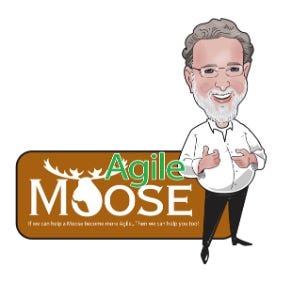Extreme Interviewing
I read this interviewing advice post by Richard Sheridan with interest. It made me reminisce about some of our most successful interview tactics in Agile team contexts—
Some of the best Menlonians we’ve ever hired didn’t have the "right" background on paper.
They had the right mindset:
🔸 Curiosity
🔸 Adaptability
🔸 Team-first thinking
At Menlo Innovations, we believe great hiring isn’t about pedigree—it’s about potential.
That's why we do things a little differently.
We don’t start with résumés.
We don’t ask for cover letters.
We don’t even filter candidates based on degrees.
We invite all interested candidates to an Extreme Interview.
This interview process is designed to reveal the human qualities that truly matter in a collaborative, joyful workplace.
Here’s how it works:
1️⃣Group Interviews, Not Solo Auditions
Dozens of candidates come together at once. Instead of one-on-one interviews behind closed doors, candidates are immediately immersed in a real-world environment.
2️⃣Pairing to Observe Collaboration
Candidates are paired with each other (three times, three different pair partners) and given simple, thoughtful exercises—not tests of technical skills, but challenges designed to reveal how they think, adapt, listen, and collaborate.
3️⃣ Helping Your Partner Succeed
The goal isn’t to outshine the person you’re paired with. It’s the opposite. We ask candidates to help their partner succeed. Because in our culture, success isn’t individual—it’s shared.
4️⃣ Team-Driven Hiring Decisions
Our entire team observes and provides input. There’s no single gatekeeper. Hiring decisions are made collectively, reflecting the idea that if you’re going to join the team, the team should help choose you.
5️⃣ Working Auditions
Candidates who thrive during the Extreme Interview are often invited back for a short paid working audition. Here, they work alongside us, pairing on real client work—proving through action, not just words, that they’re a fit. (We pay them for this time).
What we’re really interviewing for isn’t just skill—it’s humility, flexibility, emotional intelligence, and collaboration.
Extreme Interviewing has helped us:
✔️ Eliminate hidden bias toward résumés and traditional backgrounds
✔️ Hire people who thrive in a joyful, team-centered environment
✔️ Build a workplace where trust is built from day one
It’s one of the most important practices we use to protect and nurture our culture.
Talent shows up in unexpected places when you’re willing to truly see it.
My Take
It reminded me of some of the best interviewing tactics and strategies that I employed in the last few agile companies where I led the technology teams.
Everyone one of the highlighted practices—
Group interviews
Pairing
Helping your partner
Team-driven decisions
Working auditions
I’ve historically used and found great value in Extreme Programming. The practices and mindset permeate much of Menlo’s hiring approach, and that makes perfect sense because of their XP lineage.
My challenge to everyone reading this post is to reflect on and consider your hiring practices and reconsider refactoring them.
Another thing to consider is that Rich didn’t emphasize or even mention AI in his post. Not that he or I are precluding it, but extreme interviewing is an HI activity.
Stay agile, my friends,
Bob.
Here’s a somewhat dated share on how to select an Agile Coach—
https://rgalen.com/s/Selecting-an-Agile-Coach-Updated-Winter-2017.pdf
Whatever your role or experience, life in the agile space can be challenging today. Having someone to serve as your coach, as a sounding board, be a truthteller, and become a trusted partner on tap to leverage during those tricky bits can be helpful. That’s precisely where Agile Moose can help you.
We’re not just an Agile Coach, but a business domain expert, a personal advisor, an organizational design and development consultant, and a leadership coach and partner.
The moose brings over 35 years of technical and product leadership experience across a broad range of contexts. If you’re stuck and know it, reach out, as I can help.




Love this perspective! It’s refreshing to see actual human skills prioritised. My students would absolutly crush these interviews.